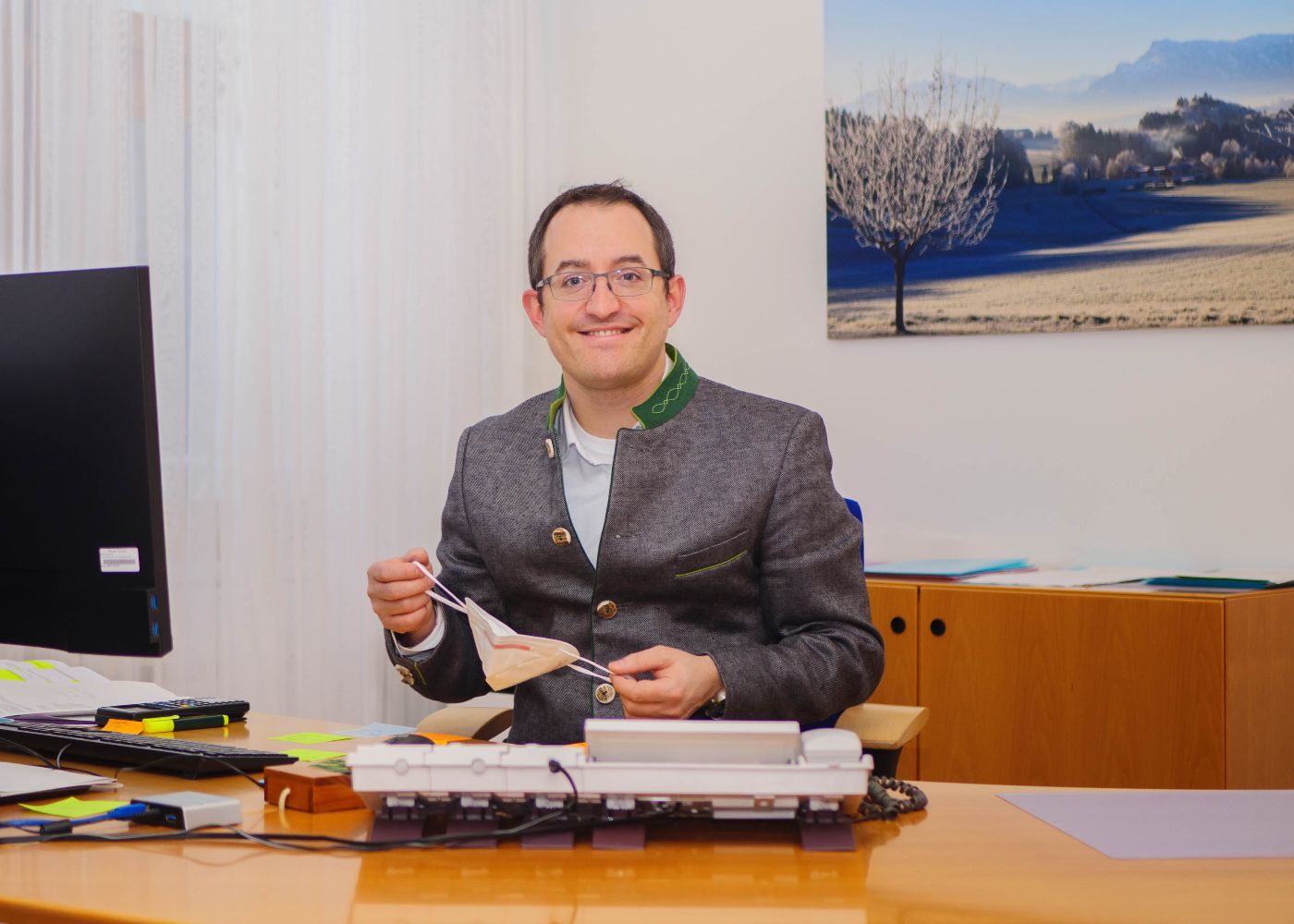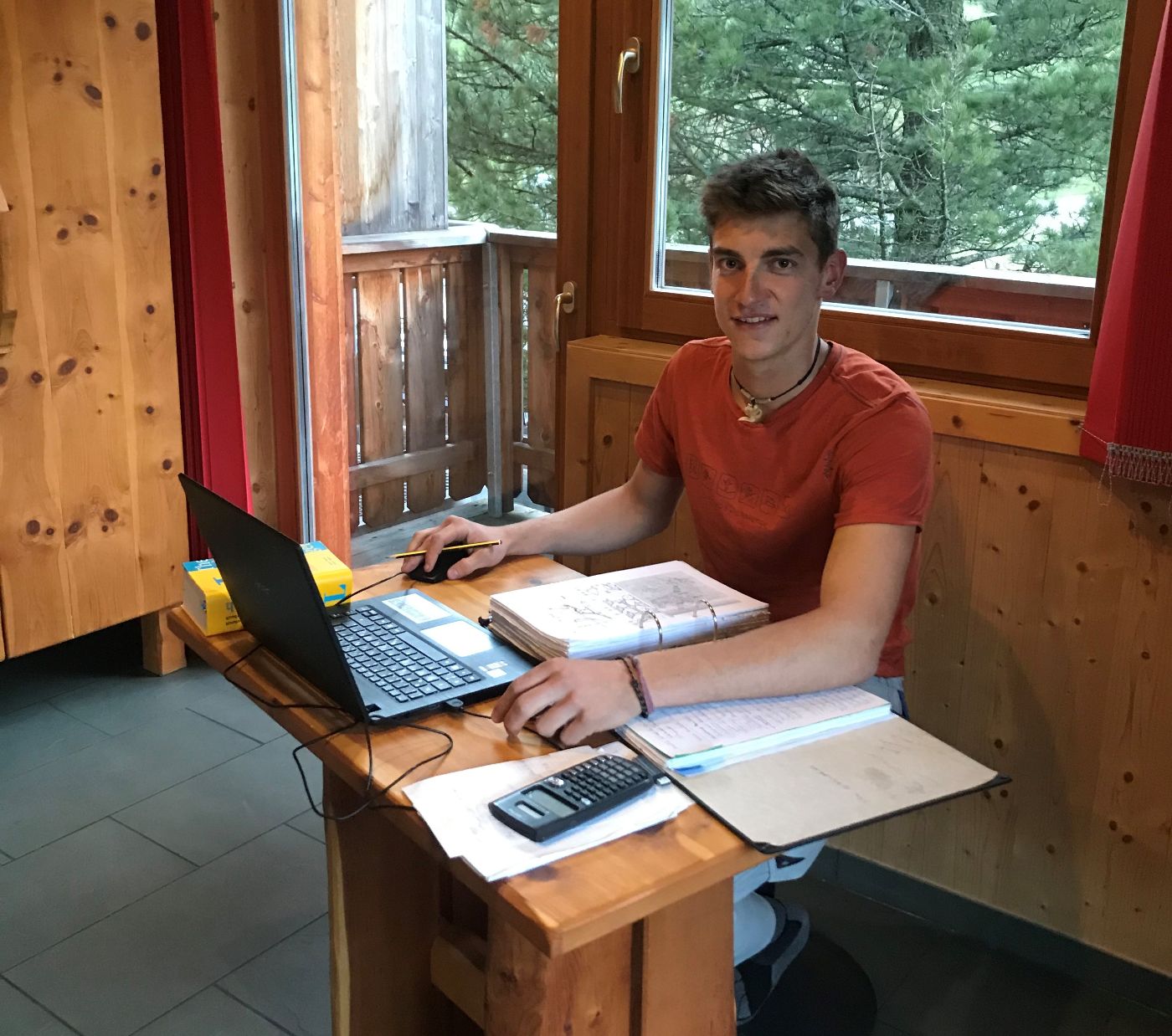Digitisation at the schools of the Federal Ministry
-...-2.jpg/jcr:content/Interview_Ursprung_c)%20...jpg)
Investment campaign allows future-oriented teaching: E-learning and digital educational priorities
Since 2019 the Federal Ministry of Agriculture, Forestry, Regions and Water Management has invested more than 1.3 million Euros in digitisation projects in the schools sector. For example, the new branch “Information technology in agriculture” was launched at the Francisco Josephinum in Wieselburg. At the innovation farm installed at the sites of Wieselburg, Raumberg-Gumpenstein and Mold, new technologies are tested and processed for use in the practice (www.innovationfarm.at).
E-learning
The objective of this investment priority of the Federal Ministry of Agriculture, Forestry, Regions and Water Management was not only to promote smart farming but also to improve the technical equipment of the schools. This has set the stage for meeting the challenges associated with the Corona pandemic. Digital classes became a matter of course for pupils and teachers last year.
Teacher training
Digitisation is gaining importance also in the education and training of teachers and advisors. With a separate institute of e-learning and e-didactics, the University of Agricultural and Environmental Teacher Training gives important impetuses in this field - on the one hand in the education and training of university students, on the other hand in further education and training (www.haup.ac.at).
Learning in times of Corona
Mister Bernhard Stehrer, the Headmaster of the HBLA Ursprung, and head boy Leo Rogl explain how they handle the challenge of e-learning and what are the problems and benefits of distance learning.

Bernhard Stehrer, headmaster:
Mister Stehrer, would you have considered it possible at the beginning of 2020 that lessons would be held in digital form over longer periods of time at your school?
Bernhard Stehrer: Of course, like all other areas of life also the educational system was completely surprised in early 2020. However, in autumn at the latest it was clear that digital teaching would be an integral part of the current school year.
What were the biggest challenges?
Bernhard Stehrer: The biggest challenge was certainly handling the framework conditions, which changed constantly. We had to react and take decisions quickly.
Where is need for improvement, or which deficits are there?
Bernhard Stehrer: Many areas of school life had to be organised in a completely new way: Digital teaching, of course, the communication with parents/guardians and, in general, maintaining a minimum of social life, which is an essential part of school activities. In all areas, there is room for improvement based on the experiences gained. We have learned a lot.
How did pupils do? Did they suffer from this situation or were there any benefits as well?
Bernhard Stehrer: The HBLA Ursprung is known for its personal atmosphere and its rich social life. Exactly these features fell victim to the pandemic and many members of the school community suffered from this situation.
How did you organise practical lessons?
Bernhard Stehrer: It was one of the most important principles in the planning of attendance phases that the timetable always included practical lessons. In this way a minimum of practical lessons was ensured.
Were pupils in a position to gather enough practical experience? Was everyone able to complete their compulsory internships?
Bernhard Stehrer: Everything considered, the practical experiences in regular school activities suffered, of course. However, the compulsory internships in the summer, which are provided for under the curriculum and last for several weeks, will take place to their full extent.
What have you learnt from this situation?
Bernhard Stehrer: I started my position as the headmaster right at the time of the pandemic and what I will always remember is the motto of the past months: ”There is no ‘that’s not possible’”!

Leo Rogl, head boy:
Leo, how did you personally cope with the special type of teaching in Corona times?
Leo Rogl: After the system had become routine somehow, I found it significantly easier to plan and organise my day. However, with increasingly little hope for an early improvement, I gradually became less motivated in some subjects.
What was particularly difficult for you and your classmates?
Leo Rogl: We missed the togetherness in the classroom: In “normal times”, social contacts foster learning and enrich everyday school life.
How did teachers manage this task from your point of view? What should be better or different?
Leo Rogl: “All beginnings are difficult”, I would say. However, as teachers adapted quickly to the situation, the quality of lessons improved significantly. In the course of time, the commitment of the teachers, which is otherwise noticeable in face-to-face teaching, was also reflected in distance learning.
Which advantages and disadvantages do you see in distance learning?
Leo Rogl: I think that the most critical problem is the risk for several pupils to go into hiding and fall behind. Moreover, especially young pupils miss the personal contact with peers. However, for students who were already good this form of learning offers more flexibility and freedom which can be used productively.
Do you think you suffered learning loss?
Leo Rogl: In many subjects I was able to compensate for specific deficits through my own initiative. However, much of what characterises our school was lost. I think that any shortfalls will not become evident until next year.